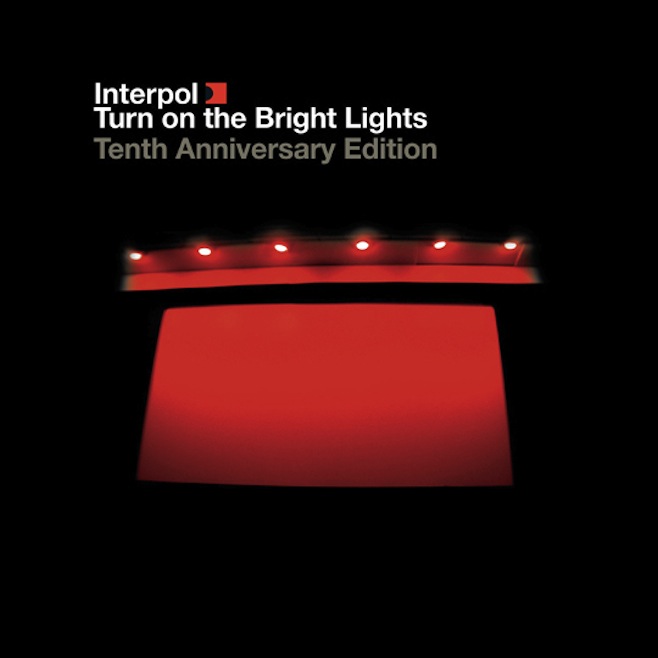2002 was a year spent in rubble, searching for a new identity. The post-9/11 world remains one in which the West seeks a dominant, overarching narrative by which to define itself. That horrible attack became an easy dividing line for culture in general, even music. The relatively carefree, surplus budget, Britpop-friendly, slack rock and grunge-obsessed ‘90s were at an end. October 2001 begot The Strokes’ debut, heralding a new return to the art-punk of the late ‘70s and early ‘80s. 2002 gave us Wilco’s prophetic “Yankee Hotel Foxtrot” and Beck’s brokenhearted “Sea Change.” But the best debut of the year was undoubtedly Interpol’s “Turn on the Bright Lights,” and the newly reissued 10th Anniversary Edition gives us ample chance to look at the landmark album with fresh eyes.
Reissue reaffirms Interpol’s continuing poignancy
The most startling thing about this year’s reissue is how poignant the album’s aesthetic and dark sonic territory remains. The cover remains emblazoned by what looks like a possessed television, lit up in bright, shining red. 2002 or 2012 alike, the world remains dark, frightening and blood red in intention. Its haunting opening track, “Untitled,” is wrapped up in dark anonymity, like its title suggests. The guitars don’t echo like The Edge’s or clang like some of Nirvana’s less muddy lead licks. They seem to arise out of dusk, all elements of song structure calling forth some far off and foreboding feeling.
“Obstacle 1” is the album’s flagship track, a definitive statement of what Interpol hoped to deliver to the world. Frontman Paul Banks’ voice calls forth limitless comparison to the monotone and iconic howl of Joy Division’s Ian Curtis while remaining fierce on its own terms. If The Strokes’ “Is This It” had recalled a sort of authentic punk, lo-fi energy that had gone a bit astray, Interpol was hoping to call dibs on the post-punk genre and let the world know they were the first to revive the sounds of Wire, Joy Division and early The Cure.
Songs are haunting soundscapes
“NYC” haunts and drearily maps out the urban landscape of a shattered city in guitars and vocals. Interpol seems to oscillate between attack and resignation when it comes to tone. In 2002, there was really only a choice between anger and fearful inability. Displacement and insecurity became national concerns as the Twin Towers’ collapse became an architectural metaphor for the increasing destruction of traditional identity failsafes. “Say Hello to the Angels” is gothic rockabilly, sped up to a time signature begotten by anxiety. “Roland” rolls like an eighteen-wheeler whose brakes just failed. The album is always on stormy seas but this one is an outright maelstrom. “Leif Erikson” closes the album with a cry against absurdism permeating our lives down to interpersonal relationships. “She says it helps with the lights out / Her rabid glow is like braille to the night / She swears I’m a slave to the details / But if your life is such a big joke, why should I care?”
So what’s new about the reissue? Is it worth buying for those who already own the original? Absolutely. The b-sides “Interlude” and “Specialist” are here for those who didn’t have them before and just add to the original album’s urban mythos. Moreover, there are demos of songs featured on the actual album that allow the adept listener to detect the slight changes made to create a more cohesive song in the long run. These features make the reissue a must-have for any Interpol fan while being an even better entryway for the new listener.
Interpol’s “Turn on the Bright Lights” is one of the more iconic records of the early 2000s and as we enter the second decade of what was then a new millenium, it’s easy to see a lot of things have changed. The quality of this record, luckily, has not.







